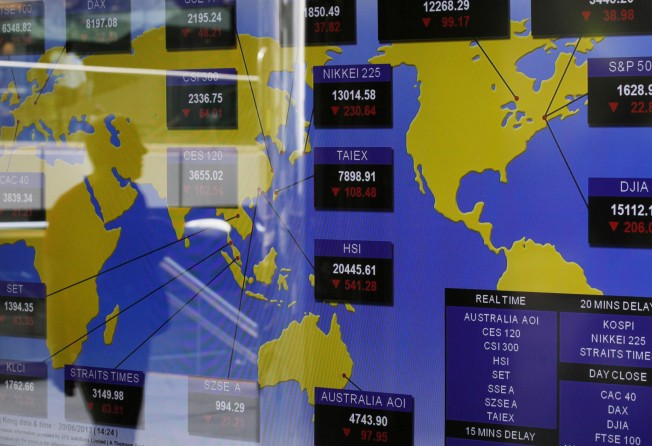High potential for growth
Investors are showing more interest but have much to learn first, writes John Cremer

It may have taken Hong Kong's retail investors a while to warm to exchange traded funds (ETFs), but the attraction of instruments, which give flexible exposure to major stock indices while also limiting risk, is catching on fast.
Indeed, more than 80 per cent of respondents in a survey say they are considering an increase in ETF holdings as part of their personal investment plan, and the overall level of new inquiries suggests that a groundswell of savings will soon be heading in that direction.
"We anticipate high potential for growth, with more retail investors present in the Asia ETF market," says Marco Montanari, managing director and head of passive asset management, Asia-Pacific, for Deutsche Bank Asset and Wealth Management Hong Kong, which oversaw the study with a Chinese-language newspaper. "However, a good knowledge of the products is crucial if investors are utilising such tools as part of their strategy, and the survey also demonstrated a lack of understanding of some of the critical benefits of ETFs in the retail environment."
To remove "roadblocks" to investor-confidence and participation, there is a concerted push to explain and enlighten. One priority is to emphasise that an ETF can be traded intraday on the Hong Kong stock exchange through a brokerage account. Another is to point out that the total fee of an ETF product is included in the trading price. The aim, of course, is to dispel doubts about how the concept works and correct any misconceptions about the levels of risk and ambiguity.
"Not everyone yet realises that ETF products are passive investment tools which allow the tracking of specific indices," Montanari says. "Naturally, returns may vary case by case due to the different characteristics of individual market indices, but the broad range of products now available means there is something for each person's needs or preferences."
As the largest provider in terms of product offerings - 38 in Hong Kong and 45 in Singapore - Deutsche has put into practice the idea of an ETF "supermarket". In essence, this gives investors ready access to different regional markets and asset classes, enabling them to build a more diversified portfolio efficiently and effectively.
Short Index ETFs are available in some offshore markets, enhancing flexibility for investors who want to participate during downward movements. And there is obviously extensive scope to focus on specific sectors or industries promising better long-term prospects.
"Every ETF product has its own unique market and purpose, and there are many ways in which investors can utilise the different types to help achieve their objectives," Montanari says. "Depending on the goal, they can gain access to broad-based regional or global indices, or hold more specialised options, such as country ETFs, as a tactical strategy within their overall portfolio."
As always, he notes, diversification is key. In addition, individuals should fully understand their objectives prior to making investment decisions. And all ETF providers should be prepared to allocate resources not just to educate retail - and institutional - investors, but also to gain a better appreciation of their needs.
Expressing similar optimism, Douglas Yones, head of ETFs in Asia for Vanguard, points out that over the past four years, the number of products has quadrupled and the amount of money invested in them has doubled. The latest figures show 170 ETFs to choose from in Hong Kong, with combined holdings of close to US$27 billion - and those totals are growing every month.
"Historically, Hong Kong investors have tended to go for local ETFs, such as the Tracker Fund, which have been very popular," Yones says. "However, they have now started to diversify in a number of ways."
For example, Renminbi Qualified Institutional Investor products and those giving access to mainland markets have seen increasing interest, and more attention is being focused on products linked to other Asian market indices. "Local investors are starting to look at ETFs as core holding in their portfolios, offering a better expected risk-return profile [than certain other options]," Yones says. "This allows them to have exposure beyond Hong Kong and China equities. The broad growth story across Asia is exciting and can help to diversify risk."
He cautions that investors should be thinking medium- to long-term, and not day-to-day movements. Too much active trading of their holdings may turn out to be detrimental, only serving to undermine the performance of the portfolio.
"People should consider their long-term investment goals rather than daily market 'noise'," says Yones, whose firm's first Hong Kong-listed ETF offers diversification across 11 countries in Asia. "We think China is an exciting place to invest, but we believe in more than just China."